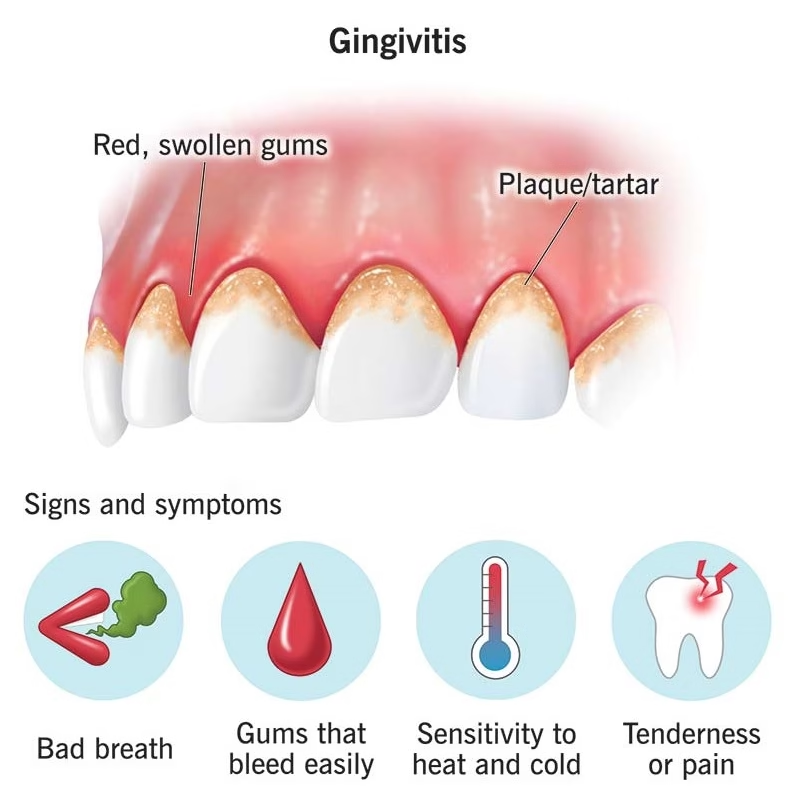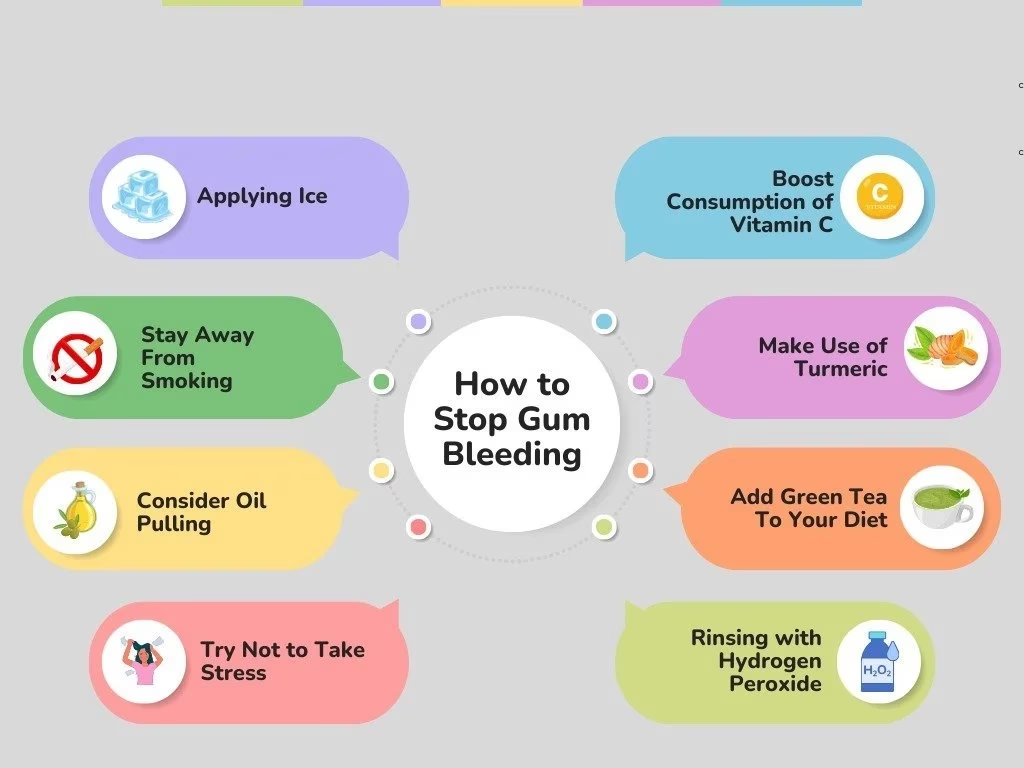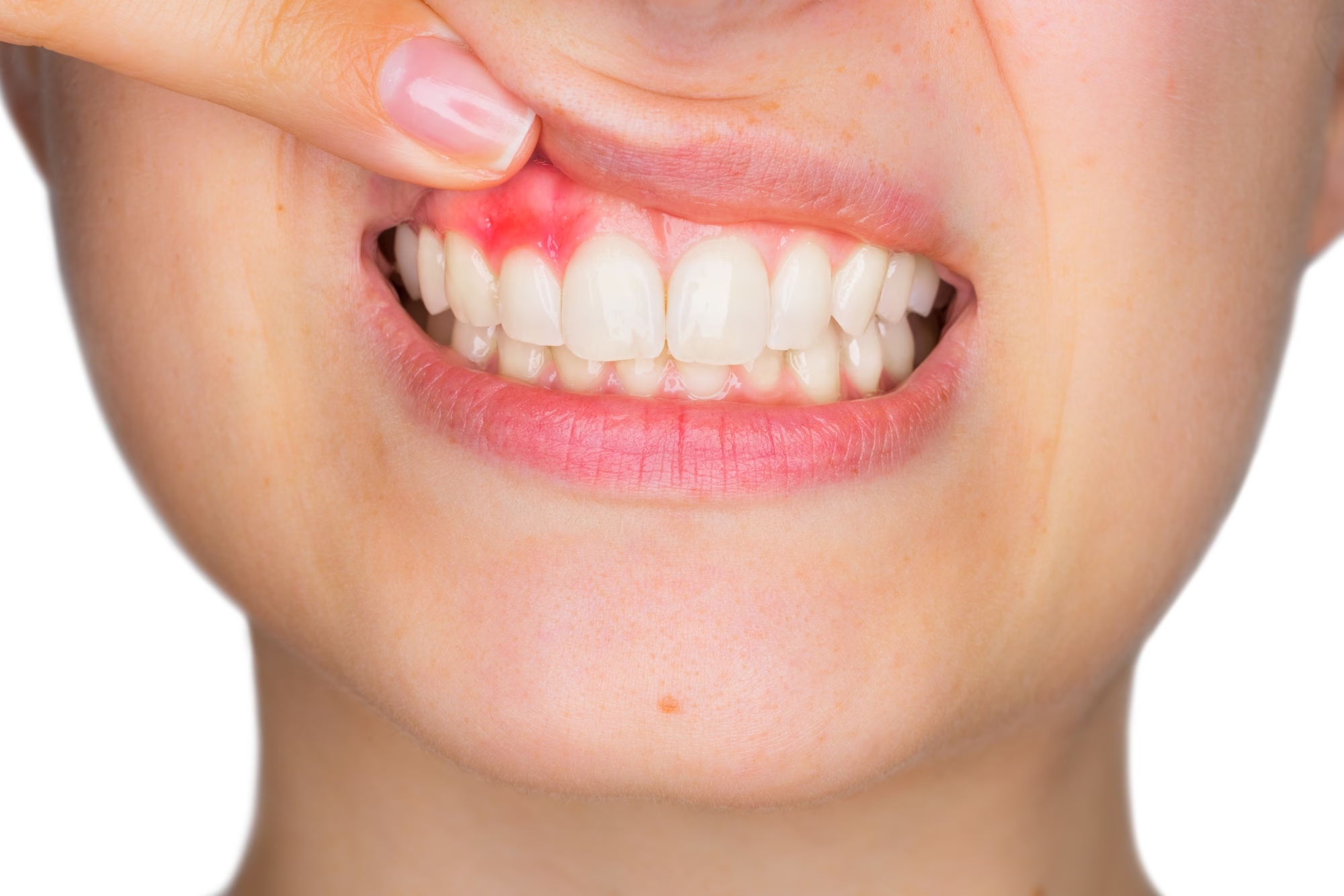Disclaimer: This article is for informational purposes only and should not be considered medical advice. Please visit your dentist for proper diagnosis and treatment.
Introduction
Have you ever brushed your teeth, spat into the sink, and noticed a pinkish tinge in the water? That’s a sign your gums are bleeding — and no, it’s not something you should ignore.
While an occasional spot of blood might happen if you’ve just started flossing or brushed a little too hard, frequent gum bleeding is often your body’s early warning signal for gum disease or other health issues. The good news? If caught early, it’s often reversible.
In this blog post, you will learn Why Your Gums Bleed and how to stop it. Let’s break down the real reasons your gums might be bleeding and the practical steps you can take to stop it.
Common Causes of Bleeding Gums
1. Gingivitis (Early Gum Disease)

Plaque — a sticky layer of bacteria — builds up along your gumline and irritates the tissue. Over time, this can make your gums red, swollen, and prone to bleeding. If left untreated, it can progress to periodontitis, which can cause tooth loss.
➡ Read more about how acidic foods damage your teeth.
2. Brushing Too Hard
Scrubbing your teeth like you’re cleaning a dirty pan won’t make them cleaner — it will just harm your gums. Always use a soft-bristled toothbrush and gentle strokes.
➡ See our tips on the best time to brush your teeth.
3. Flossing Mistakes
If you haven’t flossed in months and suddenly start, your gums may bleed for a few days. That’s normal — keep flossing daily and the bleeding should stop.
4. Vitamin Deficiencies
A lack of Vitamin C can weaken your gums, while low Vitamin K can affect blood clotting — both can lead to bleeding.
5. Hormonal Changes
Pregnancy, menstruation, or menopause can make gums more sensitive, leading to occasional bleeding.
6. Medications
Blood thinners and certain anti-inflammatory drugs can make gums bleed more easily. If you’re concerned, discuss this with your dentist.
How to Stop Bleeding Gums

1. Brush and Floss the Right Way
- Brush twice daily with gentle strokes.
- Floss slowly and carefully between each tooth.
- Use an antimicrobial mouthwash to reduce bacteria.
2. Eat Foods That Heal Gums
- Citrus fruits, strawberries, and bell peppers for Vitamin C.
- Spinach, kale, and broccoli for Vitamin K.
- Drink plenty of water to keep your mouth clean.
3. Quit Smoking
Smoking slows down gum healing and worsens inflammation.
➡ Learn how smoking can affect dental implant success.
4. Visit Your Dentist Regularly
Professional cleanings remove plaque and tartar your toothbrush can’t reach.
When to See a Dentist Immediately
- Bleeding gums that last more than a week despite good hygiene.
- Swollen or tender gums.
- Teeth that feel loose.
- Persistent bad breath.
➡Why You Should Visit Your Dentist Every 6 Months
Prevention Tips for Healthy Gums
| Habit | Why It Works |
|---|---|
| Brush gently twice a day | Removes plaque without harming gums |
| Floss daily | Cleans between teeth where a brush can’t reach |
| Eat a balanced diet | Strengthens gums and immune health |
| Avoid tobacco | Lowers gum disease risk |
| Regular dental checkups | Catches problems early |
FAQs
Q1: Can mouthwash stop bleeding gums?
Yes — an antimicrobial mouthwash can help reduce bacteria and inflammation. But it works best with proper brushing and flossing.
Q2: Does bleeding mean I have gum disease?
Not always. It can also be due to brushing too hard, vitamin deficiencies, or temporary irritation. But persistent bleeding should be checked by a dentist.
Q3: How fast can gums heal?
Mild bleeding can improve within 1–2 weeks with consistent care.
Key Takeaway
Bleeding gums aren’t just a small inconvenience — they’re a red flag. By improving your brushing technique, eating gum-friendly foods, avoiding tobacco, and visiting your dentist regularly, you can keep your gums strong and healthy for life.
Your gums are the foundation of your smile — take care of them, and they’ll take care of you.
References
- Centers for Disease Control and Prevention. Oral Health Conditions. CDC.gov
- Mayo Clinic. Bleeding Gums: Causes and Treatments. MayoClinic.org
- National Institute of Dental and Craniofacial Research. Oral Health in America. NIDCR.nih.gov
- American Dental Association – Gum Disease
- NHS – Gum Disease Overview


[…] Why Your Gums Bleed and How to Stop It […]
[…] Why Your Gums Bleed and How to Stop It […]
[…] Read More: Why Your Gums Bleed and How to Stop It […]